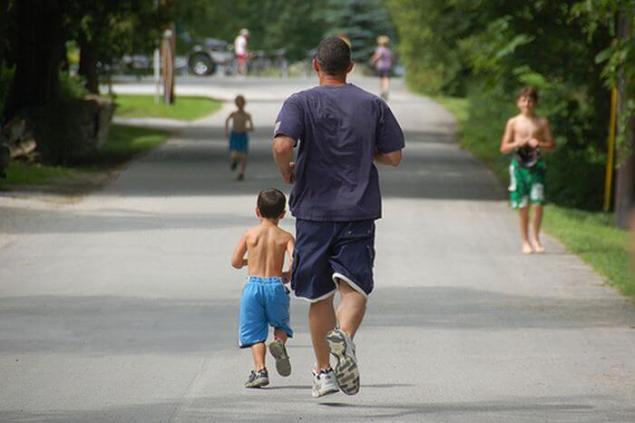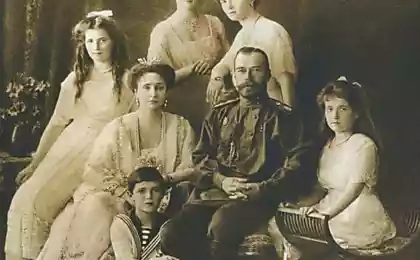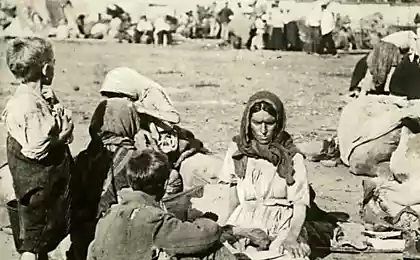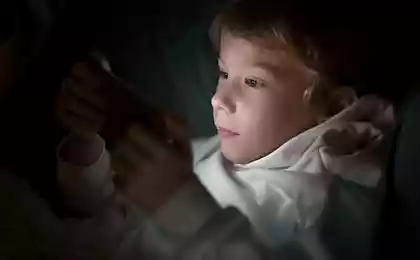505
Fathers and children: In this conflict win not the fathers!
Talk about this modern youth, which, as usual for thousands of years, is not the same as before.
Probably one of the most controversial topics lately is the topic of the differences between us and our children. By "us" I mean people 35+ or 40+ years, under the "our children" — actually, our children. From 8 to 18 years, with an average of about 14 years old.

What is the essence of the debate?
On the one hand, classical grumbling a'la "Fathers and children". Like, they're not like us, then about rave and powder their noses. This, I would say the background.
On the other — is quite serious and professionally justified concern for the integrity of the structures of the modern world. As this generation sees in him? Can, will, and, most importantly, whether they want to accept the rules of our "adult" world? Which of these rules are alien to them? How do they change that? How do we change them now? Oh, and most importantly, will there be a place for us in their world already?
Since most aspects of this debate is very elusive and obscure, the very large amount of energy translates into practical field in relation to our children to work and career. Here's quite a few philosophical suffering, here's everything about real life.
I must say, I also have some observations on this point. I was lucky, and I often communicate with students, and with students, and very well represent what they live for.
I'll try to make a small contribution to this current debate and to formulate three differences between our parent, the relationship to the work of their children.
1. PRAGMATISM RETREATSI am sure that modern teenagers are more romantic. We pragmatists, who grew up in the wild 90s with all the consequences, to talk "business", often see and seek only short-term effects. The concept of the social benefits we often become just a marketing appeals.
Our children are different, they are not so focused on making. They have a much more pronounced understanding of the public good. They quite seriously consider the possibility of working in volunteer organizations as a way of gaining experience working in a team. They expressed more empathy, they are more likely to feel the mood and condition each other.
In a sense, the ongoing conversations about changes in the model of management is a balanced response to the increasing degree of romanticism. It is difficult to build a hierarchy empathic people, scattered pyramid.

Do not work with them authoritarian-administrative approaches, they get offended and leave. Or, even worse and more confusing, smile and go.
Hence, the theory of network models of organizations, and it is already hackneyed agile. Young in every sense and is a very active it industry, which became a place of all experiments in management for the last 20 years has spawned a number of techniques that are now more cautiously adopt others.
2. PERSEVERANCE SEEMSWe were taught to delve into the details, to do one thing at a time, to batter at one point.At the heart of our education is often based on the ideas of perseverance, which is sometimes called hard work. And the idea of justice, of life that rewards for the perseverance.
Modern children are very different, they are prone to rapid and frequent shifting from task to task, from context to context. It is clear that the habit they have formed the Internet and related technologies. Rather, multiple accelerated over the past ten years, the exchange of data, which in addition gave us an increase in discontinuity and a reduction in the amount of quantum information.
In the end we got some, as my grandma used to say, rechristened in relation to business.
What is the result? Well, of course, to other forms of interaction, and other forms of tasking, and other forms of monitoring their implementation.
That is, on the one hand, modern managers have to master new channels of communication (and you've got yourself telegram, buddy?), on the other — very clear capture control points and to put yourself a hundred thousand different reminders to know the progress on the task. The term "push" (from the English "to push" — push) emerged and gained popularity for this reason.
Very often it is necessary to push the youth. They are distracted.
3. FUN WINSFor us the concept of certainty and stability is the root. Hierarchy, subordination, proper set of recipients in copy writing. The time of arrival to work, dress code.
All of these things much less positively perceived by our children. Ask them about what work for them, and get an answer in reply that the ground is fun. Work should be play, and sometimes the game becomes a job. I even feel for him envy, because they can actually afford such an attitude. Because for them, the world became wider than it was for us, it gives them much more possibilities. And these opportunities do not allow them to sink somewhere, they will always find.
Agree, it is a nightmare of a modern Manager — management of hundreds or thousands of children playing. Which can at any time just get up and go to another "sandbox", because there is a yellow machine.
In it, I regularly commemorated, there is a steady expression that introduced Hank Rainwater, — "herding cats". This is a very bright and fair for our children metaphor. Freedom-loving and proud animals need some tweaks to get them to walk in a circle and not run. This shepherd will have to change your attitude to them and to life and to yourself.
You can write a lot about the differences between us and the kids. The case is ungrateful, and this debate for thousands of years. However, there is an important difference with what's happening now from what happened before. The dispute between fathers and children usually occurred in a conservative way, and winning the argument in almost all cases been given to fathers. The kids "won" only by revolutionary means, by a social explosion.
This idea is wonderful in its time was expressed by the brothers Strugatsky in the novel "the Ugly swans".
But I think for the first time in history, we are witnessing an evolutionary win children win organic, win soft. And that I personally observe is extremely happy.published
Author: Dmitri Voloshin
P. S. And remember, only by changing their consumption — together we change the world! ©
Source: newtonew.com/opinion/fathers-vs-kids
Probably one of the most controversial topics lately is the topic of the differences between us and our children. By "us" I mean people 35+ or 40+ years, under the "our children" — actually, our children. From 8 to 18 years, with an average of about 14 years old.

What is the essence of the debate?
On the one hand, classical grumbling a'la "Fathers and children". Like, they're not like us, then about rave and powder their noses. This, I would say the background.
On the other — is quite serious and professionally justified concern for the integrity of the structures of the modern world. As this generation sees in him? Can, will, and, most importantly, whether they want to accept the rules of our "adult" world? Which of these rules are alien to them? How do they change that? How do we change them now? Oh, and most importantly, will there be a place for us in their world already?
Since most aspects of this debate is very elusive and obscure, the very large amount of energy translates into practical field in relation to our children to work and career. Here's quite a few philosophical suffering, here's everything about real life.
I must say, I also have some observations on this point. I was lucky, and I often communicate with students, and with students, and very well represent what they live for.
I'll try to make a small contribution to this current debate and to formulate three differences between our parent, the relationship to the work of their children.
1. PRAGMATISM RETREATSI am sure that modern teenagers are more romantic. We pragmatists, who grew up in the wild 90s with all the consequences, to talk "business", often see and seek only short-term effects. The concept of the social benefits we often become just a marketing appeals.
Our children are different, they are not so focused on making. They have a much more pronounced understanding of the public good. They quite seriously consider the possibility of working in volunteer organizations as a way of gaining experience working in a team. They expressed more empathy, they are more likely to feel the mood and condition each other.
In a sense, the ongoing conversations about changes in the model of management is a balanced response to the increasing degree of romanticism. It is difficult to build a hierarchy empathic people, scattered pyramid.

Do not work with them authoritarian-administrative approaches, they get offended and leave. Or, even worse and more confusing, smile and go.
Hence, the theory of network models of organizations, and it is already hackneyed agile. Young in every sense and is a very active it industry, which became a place of all experiments in management for the last 20 years has spawned a number of techniques that are now more cautiously adopt others.
2. PERSEVERANCE SEEMSWe were taught to delve into the details, to do one thing at a time, to batter at one point.At the heart of our education is often based on the ideas of perseverance, which is sometimes called hard work. And the idea of justice, of life that rewards for the perseverance.
Modern children are very different, they are prone to rapid and frequent shifting from task to task, from context to context. It is clear that the habit they have formed the Internet and related technologies. Rather, multiple accelerated over the past ten years, the exchange of data, which in addition gave us an increase in discontinuity and a reduction in the amount of quantum information.
In the end we got some, as my grandma used to say, rechristened in relation to business.
What is the result? Well, of course, to other forms of interaction, and other forms of tasking, and other forms of monitoring their implementation.
That is, on the one hand, modern managers have to master new channels of communication (and you've got yourself telegram, buddy?), on the other — very clear capture control points and to put yourself a hundred thousand different reminders to know the progress on the task. The term "push" (from the English "to push" — push) emerged and gained popularity for this reason.
Very often it is necessary to push the youth. They are distracted.
3. FUN WINSFor us the concept of certainty and stability is the root. Hierarchy, subordination, proper set of recipients in copy writing. The time of arrival to work, dress code.
All of these things much less positively perceived by our children. Ask them about what work for them, and get an answer in reply that the ground is fun. Work should be play, and sometimes the game becomes a job. I even feel for him envy, because they can actually afford such an attitude. Because for them, the world became wider than it was for us, it gives them much more possibilities. And these opportunities do not allow them to sink somewhere, they will always find.
Agree, it is a nightmare of a modern Manager — management of hundreds or thousands of children playing. Which can at any time just get up and go to another "sandbox", because there is a yellow machine.
In it, I regularly commemorated, there is a steady expression that introduced Hank Rainwater, — "herding cats". This is a very bright and fair for our children metaphor. Freedom-loving and proud animals need some tweaks to get them to walk in a circle and not run. This shepherd will have to change your attitude to them and to life and to yourself.
You can write a lot about the differences between us and the kids. The case is ungrateful, and this debate for thousands of years. However, there is an important difference with what's happening now from what happened before. The dispute between fathers and children usually occurred in a conservative way, and winning the argument in almost all cases been given to fathers. The kids "won" only by revolutionary means, by a social explosion.
This idea is wonderful in its time was expressed by the brothers Strugatsky in the novel "the Ugly swans".
But I think for the first time in history, we are witnessing an evolutionary win children win organic, win soft. And that I personally observe is extremely happy.published
Author: Dmitri Voloshin
P. S. And remember, only by changing their consumption — together we change the world! ©
Source: newtonew.com/opinion/fathers-vs-kids























